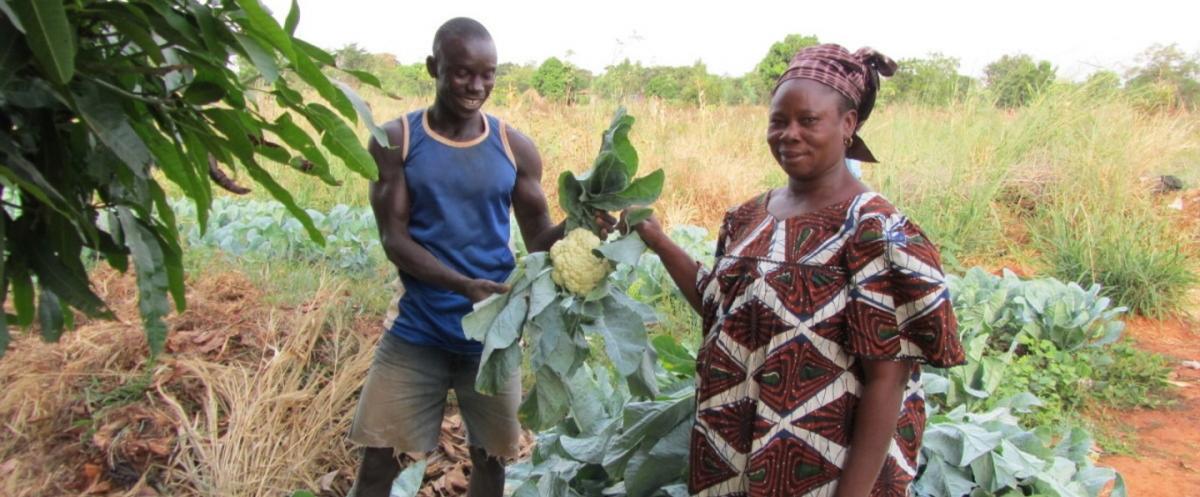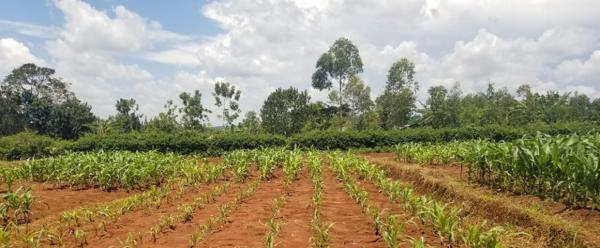Just out 3 February 2026
- Home
- Press area
- Press releases
- Food system diagnoses
Sustainable food systems: the first national diagnosis in a series of asssessments covering 50 countries

Selling cabbages in Bobo Dioulasso, Burkina Faso © P. Dugué, CIRAD
In the face of the challenges posed by food security, urbanization and climate change, our current food systems are unable to provide everyone with healthy food while preserving the environment and guaranteeing decent living standards for all.
"This study in Burkina Faso is a first step towards more sustainable food systems. it will serve to fuel debate between all the stakeholders concerned within the country", says Hélène David-Benz, a researcher with CIRAD who co-coordinated the diagnosis.
A sustainable food system meets four criteria: it ensures food and nutrition security and health; it provides jobs and contributes to GDP; it reduces inequality between territories and between the players involved in it; and it preserves natural resources.
This study, based on qualitative and quantitative data and co-designed with partners in Burkina Faso, highlighted levers for improving the above four points, notably:
Diversifying diets to fight malnutrition
In 2019 in Burkina Faso, mean energy availability was estimated to exceed the standard requirement for adults. However, 63% of that availability was down to cereals. The country's diet is thus poor in animal protein, fruit and vegetables, and is not generally sufficiently varied. There is persistent chronic malnutrition, which contributes to child and juvenile mortality. There are substantial regional variations in malnutrition, with higher levels in conflict zones.
The authors of the diagnosis recommend raising awareness of nutrition security issues, improving physical access to a range of products, and facilitating regional trade.
Supporting family farming, which is the main type of production
The food system provides 56% of jobs in the country, more than half of which are in production. The sector accounts for 42% of GDP. Family farming, which concerns the vast majority of the country's farms, is under threat on account of inadequate means of production and access to services, and to the temptation of migrating to cities or switching to non-agricultural activities (for instance gold panning).
There are several possible ways of addressing this issue, for instance strengthening the socio-educational facilities and support services on offer to producers, and helping to structure players within the food system and to diversify livelihood opportunities.
Reducing inequality between territories, which triggers migration
In Burkina Faso, imbalances between territories mean unequal levels of human development in terms of education, health and nutrition. This is exacerbated by growing insecurity, and has triggered substantial population movements. The civil and food insecurity, and also poverty, in the North of the country have caused mass migration, particularly of young people, towards urban areas and the centre of the country, increasing the already considerable population and land pressure in the zone.
The fight against insecurity, particularly in the North of the country, is one of the main challenges in achieving this objective, as is increasing investment in services and infrastructures in marginalized zones. It is vital that all the countries in the region cooperate.
Transforming agricultural production practices to safeguard natural resources
Lastly, the authors of the diagnosis noted that current production practices neither boost productivity sufficiently nor preserve natural resources. Any production increases are largely the result of increasing the areas farmed, which triggers land use conflicts, notably between crop and livestock farmers and on the fringes of protected areas. Moreover, soils in the country, which are often not very fertile, are increasingly fragile due to insufficient organic matter applications and massive use of chemical inputs in areas where cotton and market garden crops are grown.
The recommendations made following participatory workshops with local partners include making optimum use of water resources, restoring degraded land, and making production systems more resilient to climate hazards, thanks to more sustainable practices and secure land tenure.
This brief on Burkina Faso will be followed by seven others, on Madagascar, Bhutan, Senegal, Nepal, the Dominican Republic, Colombia and Malawi.
Conclusions to be presented at the UN Food Systems Summit
The conclusions of these various assessments will be presented at the Food Systems Summit convened by UN Secretary General Antonio Guterres in September 2021, to steer subsequent action within the framework of national talks on food systems.
A prior meeting is scheduled for the Pre-Summit in Rome, from 26 to 28 July.
Read the brief for policymakers
Catalysing the transformation of sustainable food systems: Early Insight - Burkina Faso



























